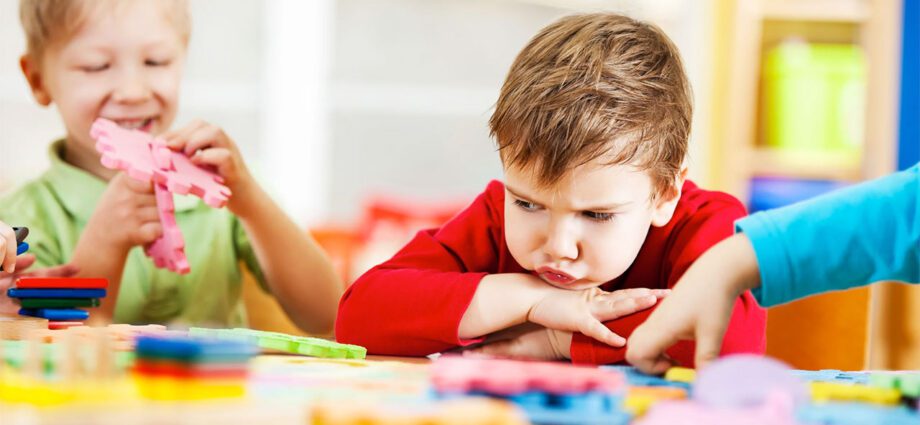Children are different. Some fight, shout, behave like savages, even bite! And other children regularly get it from them.
Psychologists admit: by nature, babies are destined to play pranks, and run, and compete for leadership. And parents and teachers still prefer children who are not heard or seen.
But in any institution for children, there will certainly be at least one “terrible child” who haunts neither educators nor his comrades. And even adults do not always succeed in pacifying it.
Raul (name has been changed. – Approx. WDay) goes to an ordinary kindergarten in St. Petersburg. His mother works here as an assistant teacher, and his father is a military man. It would seem that the boy should know what discipline is, but no: the whole district knows that Raul is “uncontrollable”. The child managed to annoy everyone who can, and especially classmates in kindergarten.
One of the girls complained to her mother:
– Raul doesn’t let anyone sleep in the “quiet hour”! He swears, fights and even bites!
The girl’s mother, Karina, was horrified: what if this Raul would offend her daughter?
– Yes, the boy is hyperactive and overly emotional, – the teachers admit, – But at the same time he is smart and inquisitive! He just needs an individual approach.
But mom Karina was not happy with the situation. She applied for protection from an aggressive boy to Svetlana Agapitova, Ombudsman for Children’s Rights in St. Petersburg: “I ask you to protect my daughter’s rights to maintain physical and mental health and check the conditions of Raul B.’s upbringing.”
“Unfortunately, we have a lot of complaints about the behavior of children,” admits the children’s ombudsman. – Some parents even believe that in such situations the rights of fighters are always protected, and no one takes into account the interests of other children. But this is not entirely true – kindergartens simply cannot transfer the child to another group after each signal. After all, there can be dissatisfied, and what then?
The situation is typical: a child must learn to live in a team, but what if the team groans from him? To what extent is it necessary to respect the rights of hyperactive children who, by their behavior, infringe upon the freedom of ordinary children? Where are the boundaries of patience and tolerance?
It seems that this problem is becoming more acute in society, and this story is a confirmation of this.
Raoul’s parents do not deny that there are problems in Raoul’s behavior, and agreed to show their son to a child psychiatrist. Now the boy is working with a teacher-psychologist, goes to family counseling sessions, and visits diagnostic centers.
The educators even decided to draw up an individual schedule of classes for the child and hope that he will still learn to control himself. They are not going to expel Raoul from the kindergarten.
“Our task is to work with all children: obedient and not very, quiet and emotional, calm and mobile,” the teachers say. – We must find an approach to each child, taking into account their individual characteristics. As soon as the process of adaptation to the new team is over, Raul will behave better.
“The educators are right: children with special needs cannot be ignored, because they, like everyone else, have the right to education and socialization,” Svetlana Agapitova believes.
In kindergarten, Karina was offered to transfer her daughter to another group, away from Raoul. But the girl’s mother refused, threatening to continue the struggle to get rid of the “uncomfortable child” in other instances.
Интервју
Могу ли „неконтролисана“ деца учити заједно са обичном децом?
Наравно, јер се у супротном неће навићи на живот у друштву.
Ни у ком случају. То може бити опасно за обичну децу.
Што да не? Само свако такво дете треба стално да брине специјалиста.
Оставицу своју верзију у коментарима










